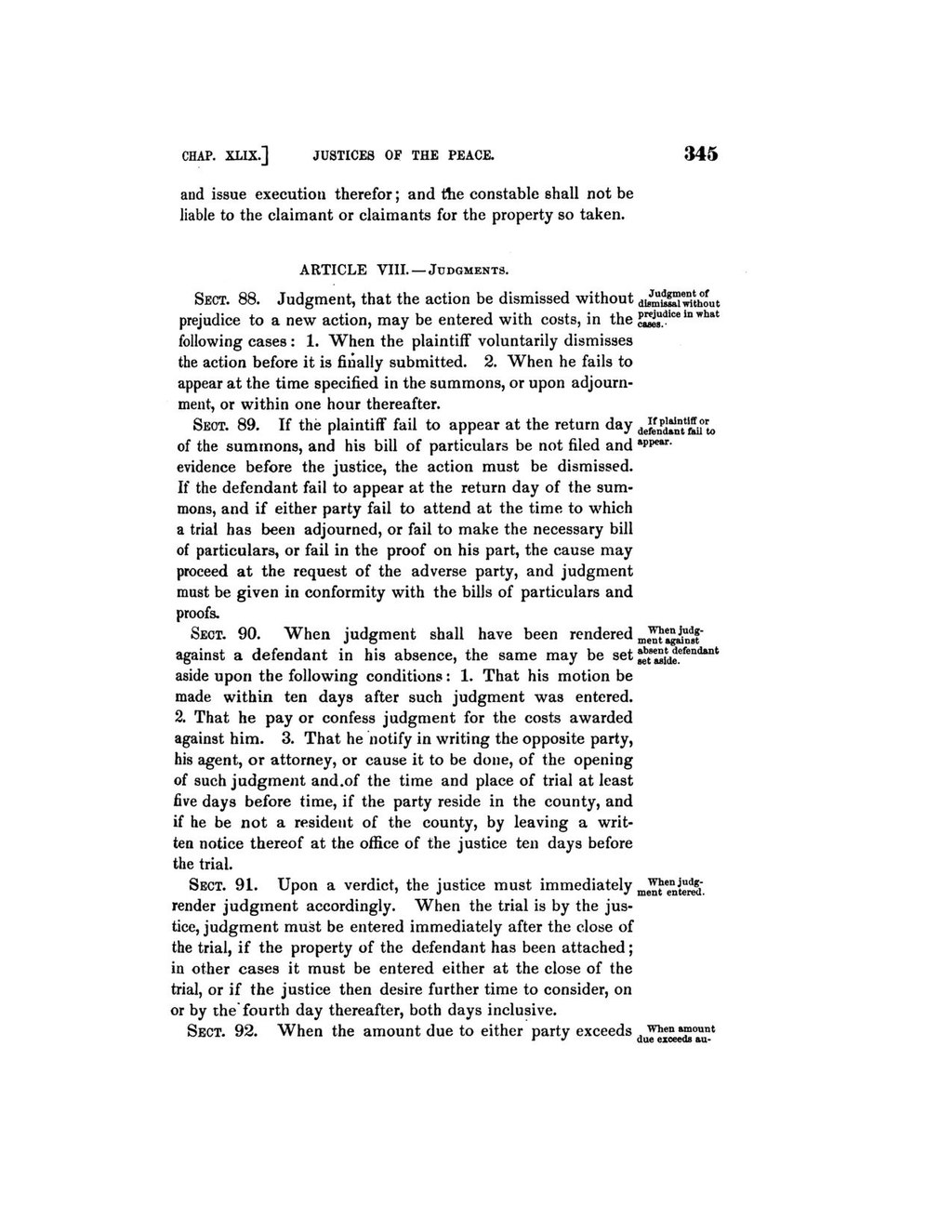and issue execution therefor; and the constable shall not be liable to the claimant or claimants for the property so taken.
ARTICLE VIII.—Judgments.
Sect. 88. Judgment, that the action be dismissed without prejudice to a new action, may be entered with costs, in the following cases: 1. When the plaintiff voluntarily dismisses the action before it is finally submitted. 2. When he fails to appear at the time specified in the summons, or upon adjournment, or within one hour thereafter.
Sect. 89. If the plaintiff fail to appear at the return day of the summons, and his bill of particulars be not filed and evidence before the justice, the action must be dismissed. If the defendant fail to appear at the return day of the summons, and if either party fail to attend at the time to which a trial has been adjourned, or fail to make the necessary bill of particulars, or fail in the proof on his part, the cause may proceed at the request of the adverse party, and judgment must be given in conformity with the bills of particulars and proofs.
Sect. 90. When judgment shall have been rendered against a defendant in his absence, the same may be set aside upon the following conditions: 1. That his motion be made within ten days after such judgment was entered. 2. That he pay or confess judgment for the costs awarded against him. 3. That he notify in writing the opposite party, his agent, or attorney, or cause it to be done, of the opening of such judgment and of the time and place of trial at least five days before time, if the party reside in the county, and if he be not a resident of the county, by leaving a written notice thereof at the office of the justice ten days before the trial.
Sect. 91. Upon a verdict, the justice must immediately render judgment accordingly. When the trial is by the justice, judgment must be entered immediately after the close of the trial, if the property of the defendant has been attached; in other cases it must be entered either at the close of the trial, or if the justice then desire further time to consider, on or by the fourth day thereafter, both days inclusive.
Sect. 92. When the amount due to either party exceeds